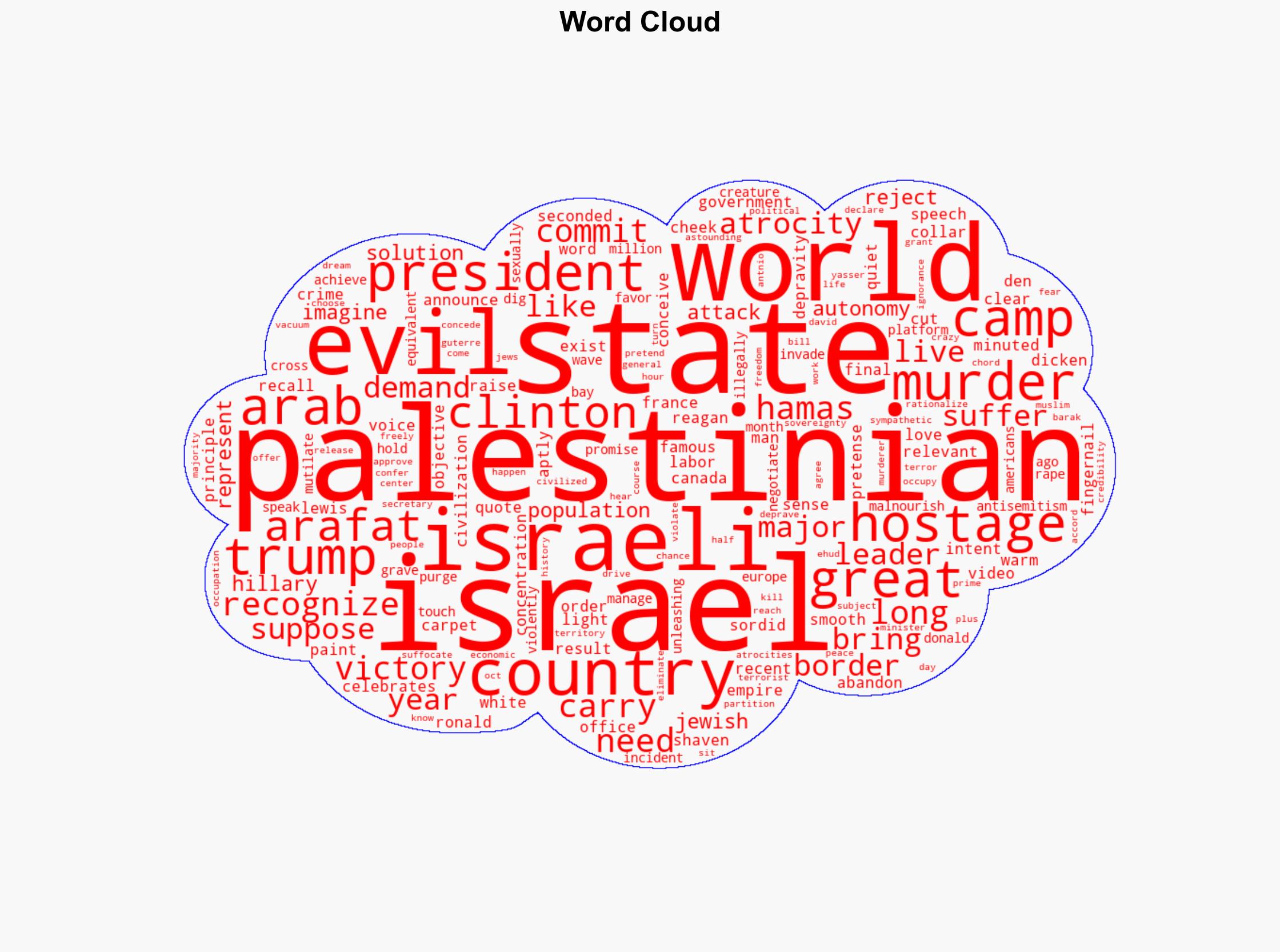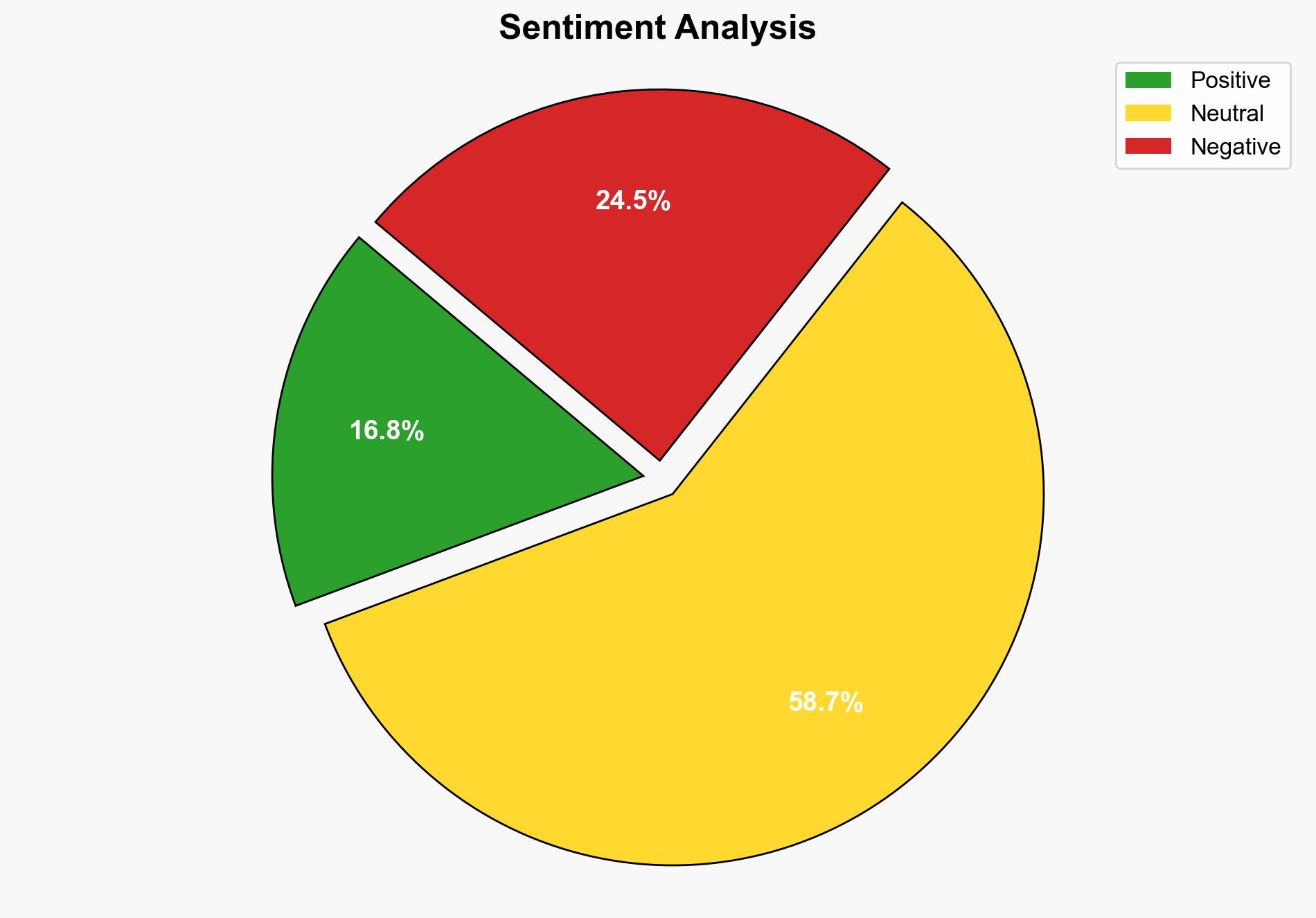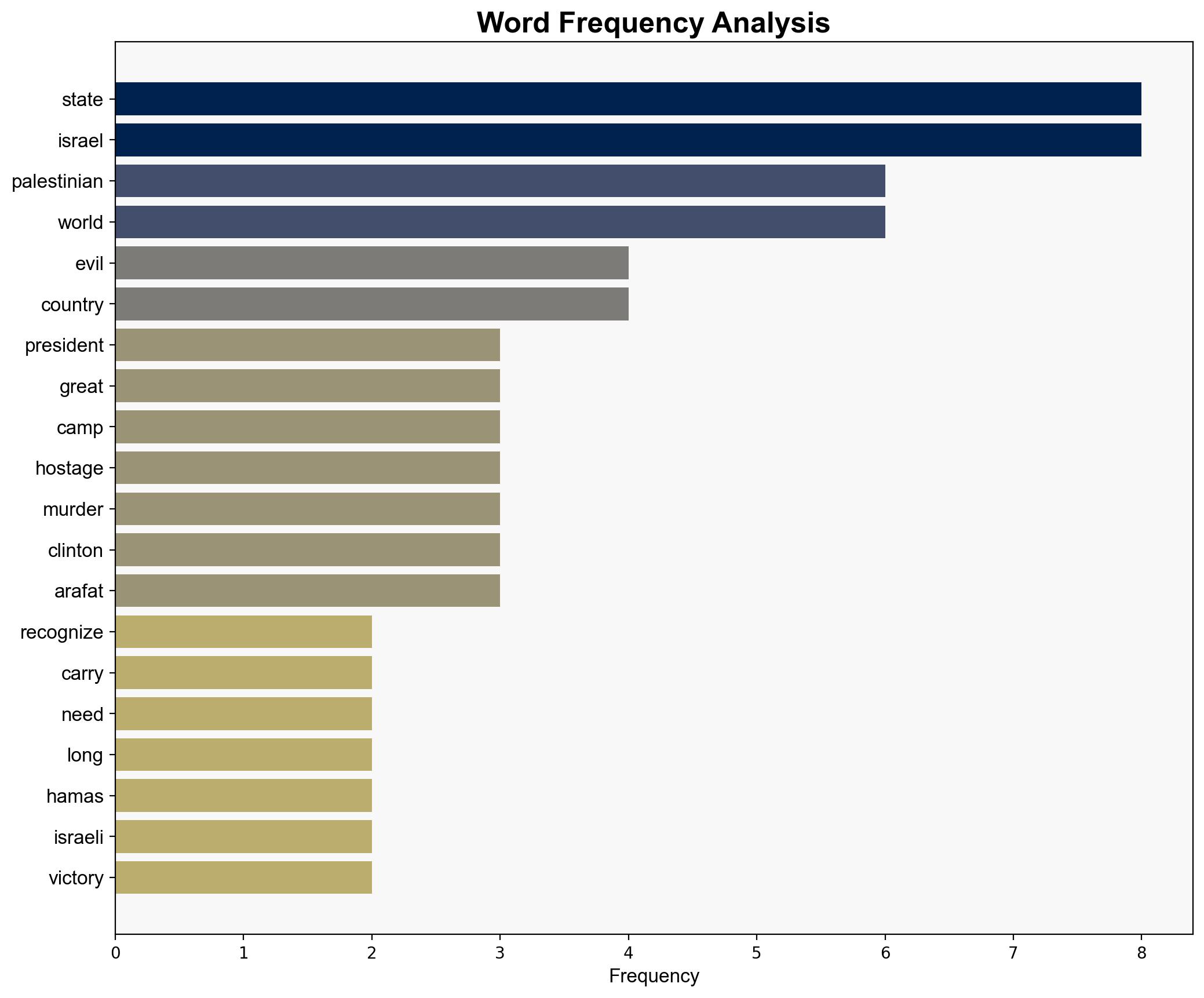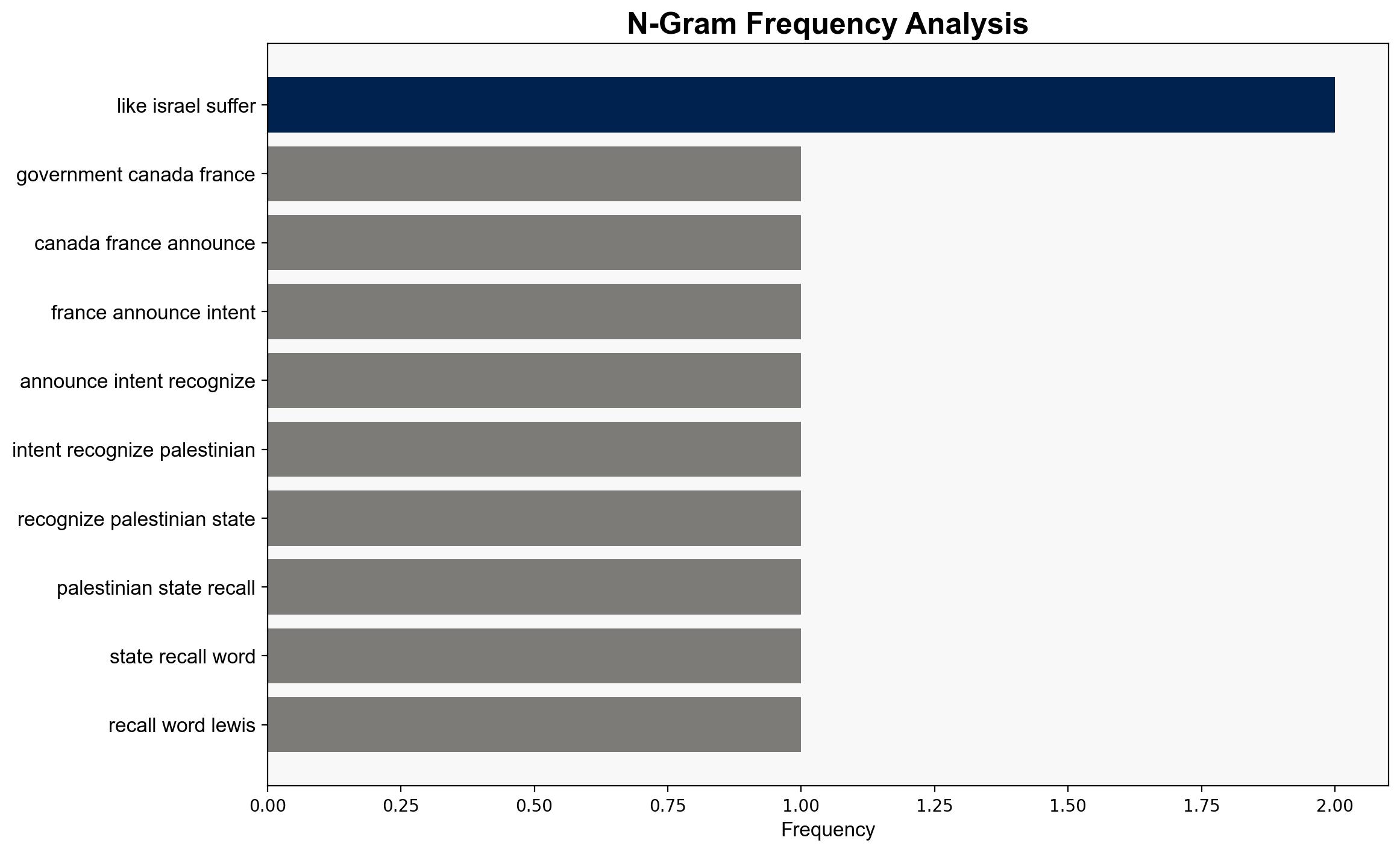An Allegedly Civilized World Genuflects to Hamas – Daily Signal
Published on: 2025-08-07
Intelligence Report: An Allegedly Civilized World Genuflects to Hamas – Daily Signal
1. BLUF (Bottom Line Up Front)
The analysis suggests a moderate confidence level in the hypothesis that international recognition of a Palestinian state is driven by geopolitical strategy rather than ideological alignment with Hamas. The recommended action is to enhance diplomatic engagement with key international players to address underlying geopolitical motivations and mitigate potential escalation of regional tensions.
2. Competing Hypotheses
1. **Hypothesis 1**: The international community’s recognition of a Palestinian state and perceived leniency towards Hamas is primarily driven by geopolitical strategies aimed at stabilizing the region and countering other regional threats.
2. **Hypothesis 2**: The recognition and perceived leniency are indicative of a broader ideological shift towards anti-Israel sentiment and support for Palestinian causes, influenced by increasing global antisemitism.
Using ACH 2.0, Hypothesis 1 is better supported by the strategic interests of nations like Canada and France in maintaining regional stability and addressing broader Middle Eastern geopolitical dynamics. Hypothesis 2, while plausible, lacks substantial evidence of a coordinated ideological shift among major world powers.
3. Key Assumptions and Red Flags
– **Assumptions**: Hypothesis 1 assumes that geopolitical stability is a primary driver for international actions, while Hypothesis 2 assumes a significant ideological shift.
– **Red Flags**: The narrative may be influenced by cognitive biases, such as confirmation bias and selective exposure to information that supports pre-existing beliefs.
– **Inconsistent Data**: Lack of explicit statements from international leaders linking their actions directly to support for Hamas or antisemitism.
4. Implications and Strategic Risks
– **Geopolitical Risks**: Increased recognition of a Palestinian state could lead to heightened tensions between Israel and its neighbors, potentially destabilizing the region.
– **Economic Risks**: Regional instability may impact global oil markets and trade routes.
– **Cyber and Psychological Dimensions**: Potential for increased cyber-attacks and propaganda campaigns aimed at influencing public opinion and policy decisions.
5. Recommendations and Outlook
- Engage in diplomatic dialogues with countries recognizing a Palestinian state to understand their motivations and address concerns.
- Enhance intelligence-sharing mechanisms to monitor shifts in international sentiment and potential threats.
- Scenario Projections:
- **Best Case**: Diplomatic efforts lead to a balanced approach that stabilizes the region without escalating tensions.
- **Worst Case**: Misinterpretation of international actions leads to increased hostilities and regional conflict.
- **Most Likely**: Continued diplomatic maneuvering with periodic tensions and negotiations.
6. Key Individuals and Entities
– Donald Trump
– António Guterres
– Bill Clinton
– Ehud Barak
– Yasser Arafat
– Hillary Clinton
7. Thematic Tags
national security threats, cybersecurity, counter-terrorism, regional focus




